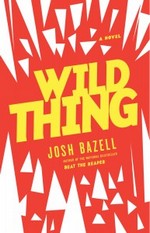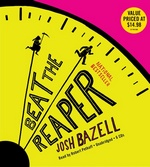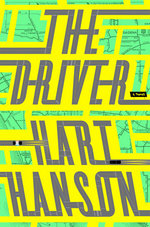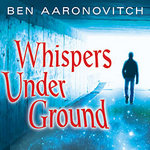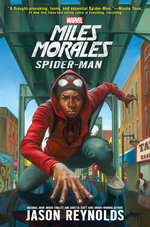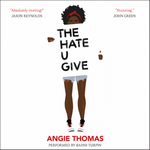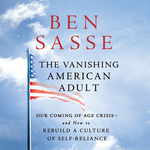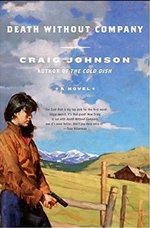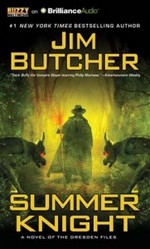 Summer Knight
Summer Knight
by Jim Butcher, James Marsters (Narrator)
Series: The Dresden Files, #4
Unabridged Audiobook, 11 hrs and 12 mins
Buzzy Multimedia Publishing Corp., 2009
Read: August 23 – 25, 2017

So, we get more information on the White Council (not just the vague references in the first couple of books and our buddy Morgan the Warden), as well as our introduction to the Fae Courts. Throw in everything we learned about Marcone in book 2, vampires in book 3, and what we’re about to learn in book 5 and we’ll have fully established the world of Harry Dresden. And wow, what a world.
But I’m getting ahead of myself. We start off with dealing with the war Harry was tricked into instigating in the last book, he’s got assassins after him — but thankfully, Billy’s got his back. A friendship has developed between Harry, Billy and the rest of Billy’s pack since Fool Moon which is pretty cool to see. Even if Harry’s too blinded by his obsessive need to cure Susan’s vampirism to see things like friendship, self-destructive lifestyle, and whatnot. Billy’s also minding the store for Harry and has made an appointment for him to meet with a new client.
Harry doesn’t want a new client — but he’s about run out of money and is looking at the business end of evictions soon, so he’d better. He doesn’t want this new client either, for reasons you can read/listen to for yourself, but she doesn’t leave him much of a choice.
Before he can get too carried away with dealing with this, he has to attend a meeting of the White Council — where he will be a major topic of conversation, thanks to the vampire war. Which isn’t going too well for the Wizards. We meet some great characters at this meeting, including Harry’s [spoiler] and mentor, Ebenezar McCoy. McCoy is a hoot — Marsters (no surprise) nails his character, by the way — he’s just one of those guys you like from the moment you meet him on the page and your appreciation for him only increases. In the end, the Council basically puts Harry to a test — if he doesn’t pass, they hand him over to the vampires; if he does, things continue on the way they are now — and if he dies in the process, well, that’ll be inconvenient. The test, naturally, involves him taking the above client he doesn’t want.
In a nutshell, a member of one of the Fae Courts has been killed and Harry has a couple of days until the Summer Solstice to find out who did it. Otherwise, the balance of power between the Courts will shift and war break out. A war that’ll pretty much decimate the planet’s climate in ways that Al Gore couldn’t imagine. Which is a bad thing for us humans. So pretty much, Harry has to solve a murder, stop a war/save the earth, while dodging assassins, skeptical wizards, and who knows what else or he’ll be tortured and killed by vampires after being abandoned by his people. In just a couple of days.
Oh, and a long-lost (and assumed dead) person from Harry’s past shows up in the middle of all this, too.
No big deal, right? Poor, poor Harry. It’s a fun adventure (for the reader), the mystery story is decent, the adversaries are fantastic — and the new characters (even those we never see again, sniff) are great additions to what’s just a great cast.
I mentioned the friendship of Billy and Harry earlier — we get a lot of it in this book, Billy’s along for most of the adventure, and he’s really turning into someone Harry can count on. Karrin Murphy gets some great action, too — and Harry finally clues her into what’s going on re: Fae, Vampires, White Council, etc. You know, keeping the promise he made to himself at the end of book 2. Well done, Dresden. I can’t fail to mention Toot Toot — he’s come a long way since we met him in Storm Front, in no small way thanks to Harry.
I’m talking about an audiobook now, so I really should say something about James Marsters’ work. I’m just going to sound like a broken record, though, if I do. I’m trying to think if I wasn’t that impressed with anything, or if there was something in particular that I thought he did well, and I can’t come up with anything. I really enjoyed his Bob in Summer Night — nothing different in the characterization, I don’t think, but it just came to life in a particular way. Also, he captured the very strong sense of fatigue, of being at the end of his rope that so defined Harry in these pages.
This wasn’t my favorite book — although I really enjoyed it on the whole — and really relished reliving the establishment of the Council and Courts in the series. While I thoroughly enjoyed the stuff in Wal-Mart (for example), it went on too long and wasn’t worth it to the story. There were a few too many moments like that in this book for my taste — fun in and of themselves, but ultimately, time wasted, so I’ll knock this down a star. Also, it proves that as much of a mindless fan-boy I can tend to be about this series, I’m a little discerning. A little.
—–





